No lasting solution of dispute without involving Kashmiris in talks: Sikandar
There can be no lasting solution of the pestering issue of Kashmir without involvement of Kashmiris in the talks between Pakistan and India, said Azad Jammu and Kashmir Prime Minister Sikandar Hayat here late on Sunday. "Any solution of the issue without involvement of Kashmiris will neither be acceptable nor will it be lasting," he said while speaking as chief guest at a dinner hosted by UK Muslim Conference president Mehmoood Riaz at Slough, on the outskirts of London.
Pakistan's High Commissioner Maleeha Lodhi, former president of AJK Abdul Qayyum Khan, AJK Member Legislative Assembly Mohammad Khan, Mohammad Ayub, Nazir Shawl, British MPs Lord Nazir Ahmed, Clare Watt, and Martin Satter, and Mayoress of Slough, Julia Long, were also present on the occasion.
Referring to coming British elections, he called upon all British-Kashmiris to be united and to back only those candidates who would commit to support their cause of Kashmir.
Sikandar urged the major powers to pressure India and said that unless they did so there would not be any progress in the current dialogue between Pakistan and India for resolving the all outstanding issues, including the core issue of Kashmir.
He brushed off the oft-repeated Indian allegation that Pakistan was stoking the indigenous struggle in Occupied Kashmir and reminded the gathering that Kashmiris had begun their freedom movement "even before the creation of Pakistan".
The struggling Kashmiris, he said, were fighting war of Pakistan's survival and neighbouring countries of India by engaging it in Kashmir. India has expansionist designs and harbours the ambition of a greater India which is unacceptable, he said.
"Kashmiris will not rest until they achieve their goal of freedom. They had neither accepted foreign domination in the past nor they will ever surrender their right to self-determination," he added.
Sikandar appealed to British Kashmiris to make investment back home as the environment was conducive for it.
Responding to various points raised by speakers before him, the AJK Prime Minister said that some new sectors were being opened where Kashmiri expatriates would be allotted plots.
Mohammad Abdul Qayyum Khan said he had been supportive of President Pervez Musharraf's policy on Kashmir, right from the beginning, because it was tailor-made to interests of both Pakistan and the people of Kashmir.
The intensity of Kashmir movement had decreased and this was required in the changed international situation. He said what was requited at the time was to create an atmosphere which would be conducive for peace and normalise relations between Pakistan and India.
He said that if India was not ready to discuss Kashmir there was no harm in having a breathing time by having a break in current talks between the two countries.
Urging British Kashmiris to increase their knowledge of the Kashmir issue and recognise realities on the ground, he impressed upon them to constantly work to apprise their MPs of human rights abuses in Occupied Kashmir.
Qayyum called upon British Kashmiris to convince British MPs, intellectuals and media that Britain had an international obligation for ensuring world peace. "There are two major disputes: Palestine and Kashmir. Palestine does not have its nuclear dimension while Kashmir has the potential to trigger a nuclear conflict in South Asia as it involves two nuclear powers.
It is not only the danger of a nuclear conflict in South Asia but an uncertainty gripping one billion people of the region which should be of concern to both Britain and the US. The two countries are cognisant of this situation," he said.
Pleading for a peaceful religious co-existence, he emphasised the need to counter propaganda of branding Muslims as 'terrorists' in the West by explaining to it that there was no room for terrorism in Islam.
British MP Martin Satter said that Kashmir should be made an issue in next British general elections. He said that people of Kashmir should enjoy the same kind of democracy as was being enjoyed by the British people.
He also read out the message of a Home Office Minister Fiona Mactaggart who called for a just and democratic resolution of the Kashmir issue. She said the Labour government would be prepared to assist Pakistan and India to bring about a negotiated settlement of the issue.
MP Clore Watt in his remarks supported Kashmiris' right to self-determination. He pledged to keep it not only on the Labour party's agenda but also raise it in the House of Commons and to work for its just solution. His British Kashmiris constituents, he said, had always been raising this issue.
Lord Nazir said that talks between Pakistan and India should be suspended for a month to "let the world know that India is continuing rape and torture" in Occupied Kashmir.
Supporting the current dialogue, he said that Qayyum could represent Kashmiris in talks.
He demanded of the AJK government to set up a medical college in Mirpur. Supporting the raising of Mangla dam, he called for ensuring proper compensation to affectees of the dam.
Mehmood Riaz, President, UK Muslim Conference (MC), said that 150 members of his party were British councillors and the party had always been active in projecting the Kashmir cause. He fully supported President Musharraf's policy on Kashmir and said it was due to his policies which won the country a respectable position in the comity of nations.
Riaz said he would continue to work to further organise MC in the UK under the guidelines of party president Attique Ahmed Khan. He praised the current development work being carried by Sikandar Hayat government.
He urged British MPs to play their role to influence their government to prevail upon India to push forward a negotiated settlement of the Kashmir issue.
Prospective Parliamentary candidate Haroon Rashid from Bradford West said Kashmir still remained a scar on the world map. He said there were 1.5 million Kashmiri expatriates living across Europe with annual turnover of $2.5 billion. Hence they had a key role to play in coming British general elections.
Nazir Shawl said that India had even martyred 12 Kashmiris in Occupied Kashmir on Sunday.
However, its continuing injustices would not dampen the resolve of Kashmiris who nurtured their struggle to make Kashmir a flashpoint in the world.
International community should press India stop human rights abuses in occupied Kashmir, he said. He supported current talks between Pakistan and India but said there should be a timeframe for peaceful solution of the issue. If India does not respond positively to many confidence building measures taken by Pakistan the latter should withdraw from these talks.
He urged British Kashmiris to support only those candidates in coming British General elections who made a commitment to support the Kashmir cause.
Prospective Parliamentary Candidate of the Labour from reading Tonpage said it was right of British Kashmiris to make Kashmir an issue during the coming British elections.
Parliamentary candidate Karamat Hussain from Bradford West remarks said India had not responded positively to many initiatives taken by Pakistan and the Kashmir issue remained a burning volcano.
Those who spoke on the occasion included Khurshid Mehmood, Qurban Hussain, Mohammad Salman, Jamil Tubassum, Advocate Majid Kiani, Mohammad Aslam, Mohammad Taj Kiani, Advocate Sheraz Khan, Zakir Kiani, Advocate, and others.













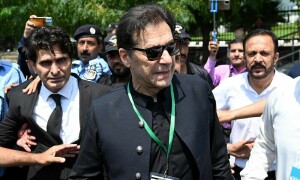
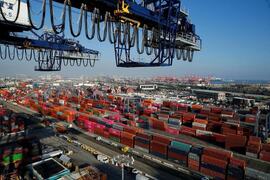


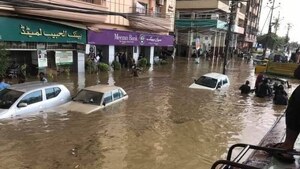

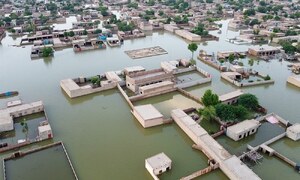
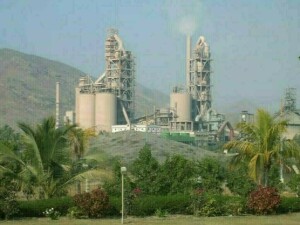


Comments
Comments are closed.